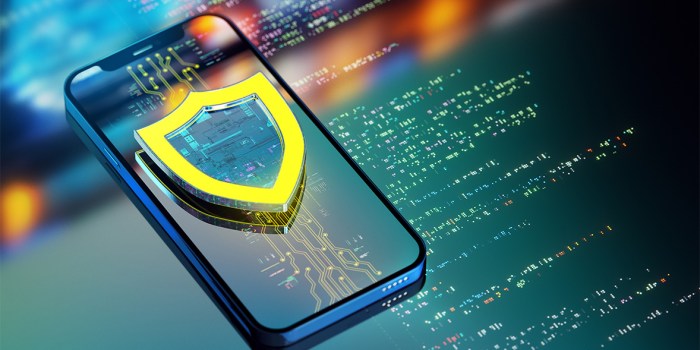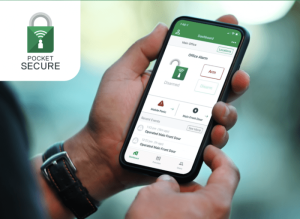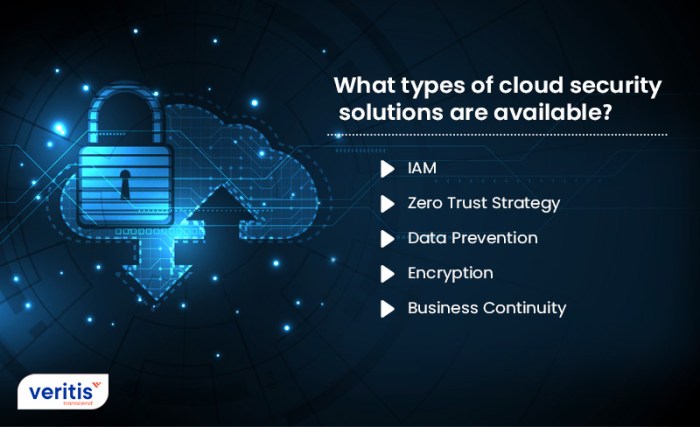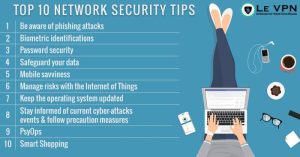
Step into the realm of Mobile Security Solutions where your digital safety is our top priority. Get ready for a thrilling journey filled with insights and tips to protect your devices!
Mobile security solutions are essential safeguards designed to protect your digital devices from cyber threats and vulnerabilities. In today’s interconnected world, where our smartphones and tablets hold a treasure trove of personal information, ensuring their security is paramount.
Introduction to Mobile Security Solutions

Mobile security solutions refer to measures and tools designed to protect mobile devices, such as smartphones and tablets, from various cyber threats and attacks. In today’s digital landscape, where mobile devices have become an integral part of our daily lives, ensuring their security is of utmost importance to safeguard sensitive information and personal data.
Common Threats to Mobile Devices
- Malware: Malicious software designed to infiltrate a device and steal personal information or cause damage.
- Phishing: Fraudulent attempts to trick users into revealing sensitive information by masquerading as a trustworthy entity.
- Unsecured Wi-Fi Networks: Connecting to unsecured public Wi-Fi networks can expose devices to hackers seeking to intercept data.
- Lost or Stolen Devices: Physical theft or loss of a device can lead to unauthorized access to personal data.
- Outdated Software: Failing to update device software leaves vulnerabilities that can be exploited by cybercriminals.
Types of Mobile Security Solutions
Mobile security solutions come in various forms to protect your devices from threats and vulnerabilities. Let’s explore the different types available in the market.
Antivirus Software vs. Mobile Security Apps
Antivirus software and mobile security apps are both essential tools for protecting your device, but they serve slightly different purposes. Antivirus software primarily focuses on detecting and removing malware, viruses, and other malicious software from your device. On the other hand, mobile security apps offer a wider range of features, including anti-theft measures, secure browsing, app permissions monitoring, and more comprehensive protection against various threats.
While antivirus software is crucial for detecting specific types of threats, mobile security apps provide a more holistic approach to keeping your device secure.
Role of Encryption in Securing Mobile Devices
Encryption plays a vital role in securing mobile devices by scrambling data to make it unreadable to unauthorized users. When data is encrypted, even if a hacker gains access to your device, they won’t be able to decipher the information without the encryption key. This is especially important for protecting sensitive data such as personal information, financial details, and confidential documents.
By encrypting your device and data, you add an extra layer of security that helps safeguard your information from potential breaches.
Implementing Mobile Security Solutions
When it comes to implementing mobile security solutions on your devices, there are several steps you can take to ensure the safety of your data and privacy.
Best Practices for Securing Mobile Devices
Here are some best practices to follow for securing your mobile devices:
- Set up a strong password or PIN to unlock your device.
- Enable biometric authentication like fingerprint or facial recognition.
- Install a reputable mobile security app to scan for malware and viruses.
- Avoid connecting to unsecured Wi-Fi networks and use a VPN when browsing on public networks.
- Keep your device’s operating system and apps up to date to patch security vulnerabilities.
- Regularly backup your data to a secure cloud storage or external drive.
Importance of Regular Software Updates
Regular software updates are crucial for maintaining the security of your mobile device. Here’s why:
- Updates often contain security patches that fix vulnerabilities that could be exploited by hackers.
- Outdated software is more susceptible to malware and other cyber threats.
- New features and enhancements in updates can improve the overall performance and user experience of your device.
Mobile Security Challenges
Mobile devices face numerous challenges when it comes to security, making them vulnerable to various threats. It is crucial to understand these challenges to effectively protect sensitive information and data stored on mobile devices.
Risks of Public Wi-Fi Networks
Public Wi-Fi networks are convenient but pose a significant risk to mobile security. Hackers can easily intercept data transmitted over these networks, leading to potential data breaches and unauthorized access to personal information. To mitigate these risks, users should avoid connecting to public Wi-Fi networks when handling sensitive information. If necessary, using a virtual private network (VPN) can encrypt data and provide a secure connection.
Phishing Threats
Phishing is a common threat to mobile security, where cybercriminals attempt to deceive users into sharing confidential information such as passwords or financial details. These attacks often occur through fraudulent emails, text messages, or malicious websites. To protect against phishing, users should be cautious when clicking on links, verifying the sender’s identity, and using security software to detect and prevent phishing attempts.
Security Measures for Mobile Banking
Mobile banking has become increasingly popular, allowing users to conveniently manage their finances on the go. However, it is essential to have robust security measures in place to protect sensitive information and prevent unauthorized access.Two-factor authentication is a crucial security feature for mobile banking apps. This process requires users to provide two forms of identification before gaining access to their accounts, adding an extra layer of security beyond just a password.
This could include something the user knows (like a password) and something the user has (like a fingerprint or a code sent to their phone).
Importance of Two-Factor Authentication
- Enhances security by requiring multiple forms of verification
- Reduces the risk of unauthorized access to accounts
- Provides an additional safeguard against password theft or hacking
Biometric authentication is another effective method for enhancing mobile banking security. This technology uses unique physical characteristics, such as fingerprints or facial recognition, to verify a user’s identity. Biometric authentication is difficult to replicate, making it a secure way to access mobile banking apps.
Role of Biometric Authentication
- Offers a convenient and secure way to access accounts
- Reduces the risk of identity theft and unauthorized access
- Provides a seamless user experience without the need to remember complex passwords
Conclusion

As we wrap up our exploration of Mobile Security Solutions, remember that staying vigilant and implementing best practices is key to keeping your devices secure. Stay informed, stay safe, and keep your digital world protected!
Essential Questionnaire
How do mobile security solutions protect my devices?
Mobile security solutions employ various tools like encryption, antivirus software, and secure authentication methods to safeguard your devices from cyber threats.
Why are regular software updates important for mobile security?
Regular software updates often include patches for known security vulnerabilities, ensuring that your device is equipped to defend against the latest threats.
What is two-factor authentication in mobile banking apps?
Two-factor authentication adds an extra layer of security by requiring users to provide two different authentication factors, such as a password and a unique code sent to their mobile device.





